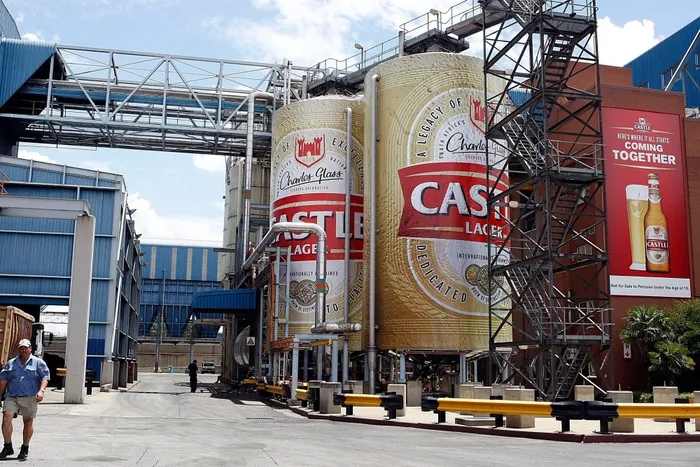SAB's half-year sales up but warns of rising illicit alcohol trading in South Africa
Alcohol products

SAB said its sales volumes of core brands such as Carling Black Label and Castle continued to grow well in the second quarter to June 30, 2025, in spite of a very challenging overall liquor market.
Image: Leon Nicholas / Independent Newspapers
SA Breweries (SAB), which managed to grow its revenues and profits by the mid-single digits for the second quarter to end-June, has warned that increasing volumes of illegal alcohol products were entering the South African market.
SAB CEO Richard Rivett-Carnac, interviewed on the same day as its parent Anheuser-Busch InBev released its half-year report, said illegal alcohol product sales were now estimated to make up as much as about 20% of the local market, generating up to R25 billion a year in sales.
This also translated into a loss to the government of many billions of rand through unpaid customs and excise duties and other taxes, he said in an interview.
He said many illegal alcohol product vendors were operating relatively sophisticated schemes, such as recycling bottles, counterfeiting brand labels and bottle tops, and substituting legal brand products with all manner of ingredients that may be dangerous to health, such as ethylene.
Rivett-Carnac said they were becoming increasingly concerned about fake alcohol products in the South African market because they had seen what had become of the cigarette market, where it was estimated that 60% to 70% of that market now comprised products that do not pay customs and excise duties and other taxes.
He said SAB, which operates seven breweries in South Africa, had performed well through the second half considering that South Africa’s overall liquor market was challenging at present, due to factors such as low GDP growth, high unemployment and the increasing prevalence of illegal products.
“We see our Carling Black Label and Castle beers still performing well. Our premium brands, such as Corona and Stella Artois, have grown in the mid-teens and are growing consistently, while our Beyond Beer products such as Brutal Fruit and Flying Fish increased in the mid-single-digit figures.”
He said they continue to invest to increase and improve capacity at the breweries and other facilities, and there was still “a big runway” for increased efficiencies at its production facilities.
Meanwhile, the share price of SAB’s global parent Anheuser-Busch InBev became the worst performer on the JSE Thursday morning, falling by as much as 9% after it reported a 14% increase in profit to $1.67bn, while revenue fell 2% to $15bn.
However, its global beer volumes declined by 1.9% in the second quarter, weighed down by performances in Brazil and China, with beer volumes down by 2.2% and non-beer volumes up by 0.3%. Volumes declined by 2% for the first half, with beer down 2.3% and non-beer volumes flat.
“While overall volumes were below potential, underlying momentum continued in the remainder of our footprint, with volume growth of 0.7% outside of these two countries. Top-line growth combined with disciplined resource allocation and overhead management drove underlying earnings per share growth of 17.4% in constant currency and 8.7% in US dollars to reach 98 US cents."
In Nigeria, revenue grew by strong double digits, driven by revenue management initiatives in an inflationary environment. In our other markets in Africa, volume in aggregate grew by low-single digits, driven by Tanzania and Mozambique.
BUSINESS REPORT